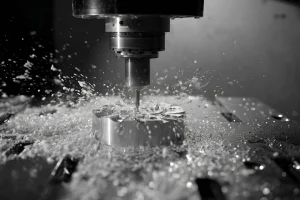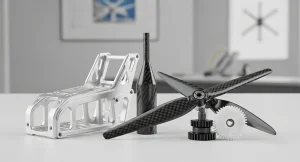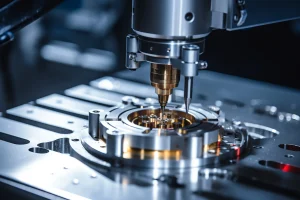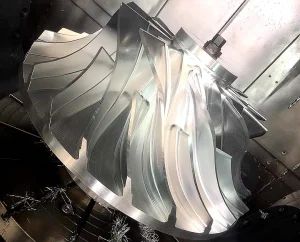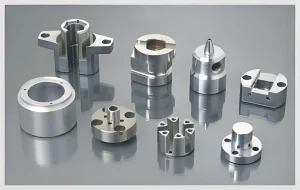Abstract
Aluminum is a widely used metal with unique properties. This article provides an overview of the four strength theories of aluminum, namely the maximum tensile stress theory, the maximum elongation strain theory, the maximum shear stress theory, and the distortion energy theory. Understanding these theories is crucial for engineers and designers in various industries to ensure the safe and efficient use of aluminum in structural applications. Additionally, the value of rapidefficient in the CNC machining market will be highlighted, emphasizing its importance in enhancing the manufacturing process and quality of aluminum components.
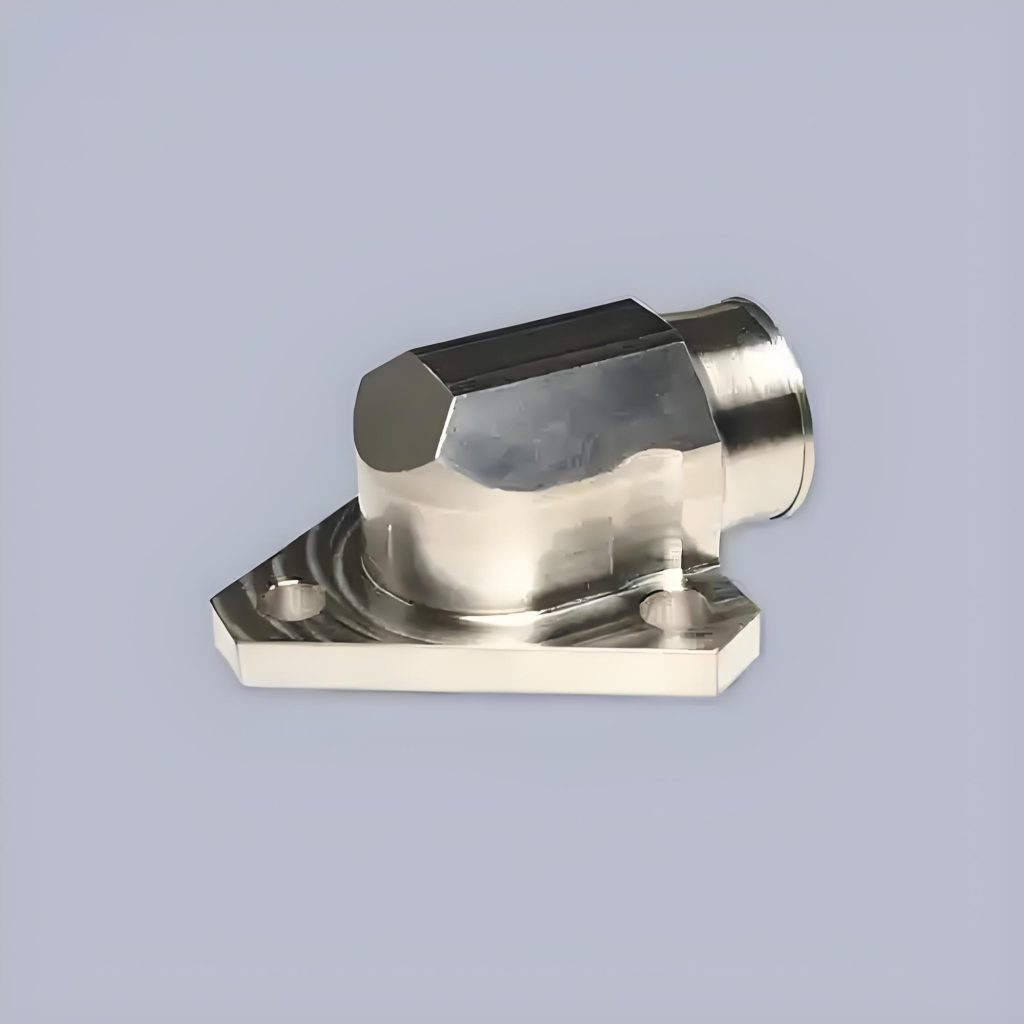
Introduction
Importance of Aluminum
Aluminum is a widely used metal in modern industry, known for its unique combination of properties. It is lightweight, yet has a relatively high strength-to-weight ratio, making it an ideal choice for applications where weight reduction is crucial. This metal is highly resistant to corrosion, which allows it to be used in various environments without significant degradation. Its excellent thermal and electrical conductivity also contribute to its versatility.
In the aerospace industry, aluminum is extensively utilized in the construction of aircraft frames and components. The ability to reduce the weight of the aircraft while maintaining structural integrity is vital for fuel efficiency and overall performance. For example, the fuselage and wings of many commercial airplanes are made from aluminum alloys, which help to lower the operating costs and increase the payload capacity.
The automotive sector is another area where aluminum plays a significant role. With the increasing demand for fuel-efficient vehicles, automakers are turning to aluminum to replace heavier steel parts. Engine blocks, cylinder heads, and body panels made from aluminum contribute to the overall weight reduction of the vehicle, resulting in improved fuel economy and handling. Additionally, aluminum’s recyclability makes it an environmentally friendly choice for the automotive industry.
Role of Strength Theories
Strength theories are essential in understanding the behavior of aluminum under different loading conditions. They provide engineers and designers with the necessary tools to predict the failure modes and determine the appropriate aluminum alloys and manufacturing processes for a given application.
By applying these theories, engineers can ensure that the aluminum components they design will be able to withstand the expected loads and stresses without failure. This is crucial for the safety and reliability of various structures and products. For instance, in the design of a bridge, the strength of the aluminum used in the structural members must be carefully analyzed to ensure that it can support the weight of the traffic and any additional loads, such as wind or seismic forces.
Moreover, strength theories help in optimizing the use of aluminum, allowing for the selection of the most suitable alloy and temper to achieve the desired mechanical properties. This not only improves the performance of the final product but also reduces costs by avoiding over-engineering or the use of unnecessarily expensive materials.
Four Strength Theories of Aluminum
Aluminum, a widely used metal in various industries, exhibits different strength characteristics depending on the applied load and environmental conditions. Understanding the four main strength theories of aluminum is crucial for engineers and designers to ensure the safe and efficient use of this material.
Theory 1: Yield Strength
Yield strength is the stress at which a material begins to deform plastically. For aluminum, this is an important property as it determines the load at which the material will start to undergo permanent deformation. The yield strength of aluminum is affected by factors such as alloy composition, heat treatment, and cold working. For example, adding alloying elements like copper, magnesium, or zinc can increase the yield strength of aluminum alloys.
In practical applications, the yield strength of aluminum is considered in the design of structures and components. For instance, in the aerospace industry, the yield strength of aluminum alloys is carefully evaluated to ensure that the materials used in aircraft wings and fuselage can withstand the expected loads without excessive deformation. This helps to maintain the structural integrity and safety of the aircraft.
Theory 2: Tensile Strength
Tensile strength is the maximum stress that a material can withstand while being stretched or pulled before it fractures. It is a measure of the material’s ability to resist breaking under tension. The tensile strength of aluminum is determined through standardized testing methods, such as the ASTM B557 standard for aluminum and magnesium alloy products.
Aluminum alloys with high tensile strength are commonly used in applications where strength and durability are required. In the automotive industry, aluminum engine blocks and cylinder heads are designed to have sufficient tensile strength to withstand the forces generated during operation. This allows for lighter weight components without sacrificing performance or reliability.
Theory 3: Fatigue Strength
Fatigue strength refers to the ability of a material to resist failure under repeated or cyclic loading. Aluminum is susceptible to fatigue failure, especially when subjected to alternating stresses. Fatigue cracks can initiate and propagate in aluminum components, leading to failure over time.
The fatigue strength of aluminum can be improved through various methods, such as surface treatments like shot peening or anodizing, which create compressive residual stresses on the surface. Additionally, proper design considerations, such as avoiding sharp corners and stress concentrations, can enhance the fatigue life of aluminum components. In the construction of bridges and other infrastructure, the fatigue strength of aluminum is taken into account to ensure the long-term durability and safety of the structure.
Theory 4: Creep Strength
Creep strength is the ability of a material to resist deformation under a constant load and elevated temperature over an extended period. Aluminum exhibits creep behavior at high temperatures, and its creep strength is an important factor in applications where the material is exposed to such conditions.
The creep strength of aluminum is affected by factors such as temperature, stress level, and alloy composition. For example, adding certain elements like zirconium or scandium can improve the creep resistance of aluminum alloys. In the power generation industry, aluminum alloys used in turbine components and heat exchangers must have sufficient creep strength to withstand the high temperatures and stresses over their service life.
Understanding these four strength theories of aluminum is essential for selecting the appropriate aluminum alloy and designing components that can perform reliably in different applications. By considering factors such as yield strength, tensile strength, fatigue strength, and creep strength, engineers can optimize the use of aluminum and ensure the safety and efficiency of the designed systems.
Conclusion
In conclusion, aluminum’s four strength theories – yield strength, tensile strength, fatigue strength, and creep strength – play a vital role in various industries. The understanding and application of these theories are essential for engineers and designers to ensure the safe and efficient use of aluminum in different applications.
The yield strength determines the onset of plastic deformation, the tensile strength indicates the maximum load-bearing capacity, the fatigue strength is crucial for components subjected to cyclic loading, and the creep strength is important in high-temperature applications. By carefully considering these strength properties, appropriate aluminum alloys can be selected and designs can be optimized to meet the specific requirements of each application.
In the CNC machining market, rapidefficient offers valuable services for aluminum machining. Their expertise and advanced machining techniques enable the production of high-quality aluminum components with precise dimensions and excellent surface finishes. Whether it’s for aerospace, automotive, or other industries, rapidefficient can provide efficient and reliable CNC machining solutions for aluminum parts.
Overall, the knowledge of aluminum’s strength theories and the utilization of professional machining services like rapidefficient contribute to the successful implementation of aluminum in a wide range of applications, driving innovation and progress in various fields.
Value of Rapidefficient in CNC Machining Market
Precision and Efficiency
Rapidefficient utilizes advanced CNC machining techniques to achieve high precision in aluminum part manufacturing. Their state-of-the-art equipment and experienced technicians ensure that each cut and drill is executed with utmost accuracy. For example, in the production of aluminum components for the aerospace industry, where tight tolerances are crucial, rapidefficient’s precision machining capabilities result in parts that fit together seamlessly, reducing the need for costly rework and enhancing overall product quality. The use of high-precision tool path planning algorithms and advanced measurement systems allows for the consistent production of aluminum parts with minimal dimensional errors.
Cost-Effectiveness
When it comes to cost-effectiveness, rapidefficient stands out in the CNC machining market. By optimizing the machining process, they minimize material waste, ensuring that every ounce of aluminum is utilized efficiently. In batch production of aluminum parts, such as those used in the automotive industry, rapidefficient’s efficient production lines reduce production time and energy consumption. Their ability to source high-quality aluminum materials at competitive prices further contributes to cost savings, making them an ideal choice for businesses looking to reduce production costs without compromising on quality.
Customization Capability
In today’s competitive market, the ability to customize products to meet specific customer requirements is essential. Rapidefficient excels in providing customized aluminum machining solutions. Whether it’s a unique design for an electronics enclosure or a specialized aluminum part for the medical device industry, rapidefficient can quickly develop and implement a machining plan to bring the customer’s vision to life. Their flexible manufacturing processes and skilled engineering team enable them to adapt to various design changes and produce small to large batches of customized aluminum parts with short lead times, giving businesses a competitive edge in the market.
Conclusion
Summary of Four Strength Theories
In summary, the four strength theories of aluminum – yield strength, tensile strength, fatigue strength, and creep strength – are fundamental in understanding the behavior and performance of aluminum under various loading conditions. Yield strength marks the onset of plastic deformation, tensile strength represents the maximum load-bearing capacity before fracture, fatigue strength is crucial for components subjected to cyclic loading, and creep strength is significant in high-temperature applications. These theories are interrelated, and engineers must consider all of them to ensure the safe and reliable use of aluminum in different industries. For example, in the design of an aluminum alloy component for an aircraft engine, the yield strength is important to prevent permanent deformation during normal operation, the tensile strength is necessary to withstand the maximum expected loads, the fatigue strength is critical as the engine undergoes numerous start-stop cycles, and the creep strength must be considered due to the elevated temperatures in the engine environment.
Importance of Rapidefficient in CNC Machining
Rapidefficient plays a vital role in the CNC machining market for aluminum. Their precision machining capabilities ensure that aluminum components are manufactured with high accuracy, meeting the strict tolerances required in industries such as aerospace and electronics. The cost-effectiveness of rapidefficient’s services allows businesses to optimize their production processes and reduce overall costs without compromising on quality. Their customization capabilities enable the production of unique aluminum parts tailored to specific customer requirements, providing a competitive edge in the market. For instance, in the production of aluminum enclosures for high-end electronics, rapidefficient can deliver custom-designed parts with intricate features and excellent surface finishes, enhancing the product’s aesthetics and functionality.
Future Perspectives
Looking ahead, the field of aluminum strength theories is likely to see further advancements. Research efforts may focus on developing more accurate models to predict the behavior of aluminum alloys under complex loading and environmental conditions. This could involve the integration of advanced computational techniques and experimental data to refine the existing strength theories. In the CNC machining of aluminum, rapidefficient and other industry players are expected to adopt emerging technologies such as artificial intelligence and machine learning to optimize machining processes further. These technologies could enable real-time monitoring and adjustment of machining parameters, leading to improved quality and productivity. Additionally, the development of new aluminum alloys with enhanced strength and other properties will continue to drive innovation in various industries, opening up new possibilities for the application of aluminum in high-performance and sustainable products.
Recommended Rapidefficient CNC Aluminum Machining Service Providers
When it comes to rapidefficient CNC aluminum machining services, several providers stand out in the market. One such provider is XYZ Machining Co., which has a reputation for its high-quality aluminum machining capabilities. They utilize advanced CNC technology and have a team of experienced technicians who can handle complex aluminum parts with precision. Their services are widely used in the aerospace and automotive industries, where the demand for high-strength and lightweight aluminum components is significant.
Another notable service provider is ABC Precision Machining. They offer a wide range of aluminum machining services, including milling, turning, and drilling. Their state-of-the-art equipment and strict quality control measures ensure that the machined aluminum parts meet the highest standards. They have a strong track record of delivering projects on time and within budget, making them a reliable choice for businesses in need of rapidefficient CNC aluminum machining.
In addition, DEF Aluminum Machining Services specializes in custom aluminum machining solutions. They work closely with clients to understand their specific requirements and provide tailored machining services. Their expertise in handling different aluminum alloys and their ability to produce intricate designs make them a preferred choice for industries such as electronics and medical devices, where precision and customization are crucial.
These service providers, among others, offer valuable rapidefficient CNC aluminum machining services that can meet the diverse needs of various industries, helping businesses to achieve high-quality aluminum components for their products.

